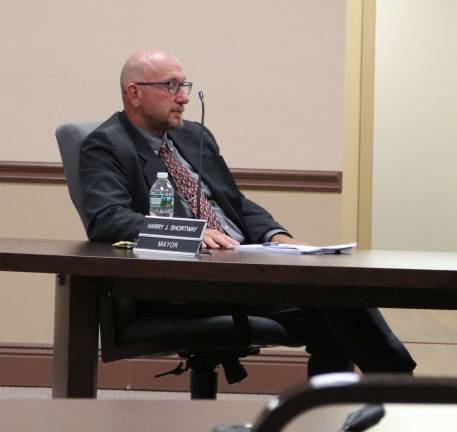Shortway targets short-term rentals

VERNON — Vernon Township Mayor Harry Shortway requested that the members of the Township Council on Monday begin reviewing and researching ordinances and zoning laws concerning Airbnb and other short-term rental properties of other New Jersey townships.
“I'm receiving complaints regarding Airbnb’s and similar short-term rentals throughout the township,” Shortway said. “Regulations are required.”
Airbnb.com, and other short-term rental sites such as VRBO.com, Tripping.com, and HomeAway.com offer the owner of property, or the “host” to offer their property for rent on a daily basis to a consumer, otherwise known as a “traveler.” This is known as a peer-to-peer property rental service.
Airbnb, founded in 2008, is the most popular of these websites. Airbnb recorded $2.6 billion of revenue in 2017, and generally charges a 3% fee on properties rented through the site.
There is currently over 100 listings for Vernon on Airbnb.com. Most of these rentals are condos at Mountain Creek, but there are a number of larger homes and townhouses listed as well.
Larger cities like New York City attribute housing shortages, and rising rents to the growing number of short-term rental properties.
Towns and cities have struggled to keep up ordinances and zoning laws to properly regulate peer-to-peer rental services, with some areas deciding to outright ban the service.
Shortway stopped short of recommending the banning of short-term rentals altogether.
“Towns like Paramus have totally prohibited Airbnb’s, but they’re not a vacation resort community,” Shortway said.
Instead, Shortway envisioned an opportunity for the township to add another revenue stream. He plans to generate this revenue through application and permit fees, as well as adding a 6 percent hotel occupancy tax. Shortway also stated that failure submit applications or pay fees could result in a court summons and possible penalties.
Other restrictions recommended by Shortway in the proposed ordinance would limit the number of cars allowed to park at the property, prohibit renters or homeowners to alter the character of the neighborhood, and limiting the number of guests that can stay at a property dependent on the square footage of the location.
Shortway also noted that private lake communities, such as Highland lakes, could propose their own challenges.
“We’re going to have to get them (Lake Communities) involved in this discussion,” Shortway said.
“This is only the beginning,”Shortway said, “as we continue our investigation and due diligence, members of the council can start contemplating seeing this as a topic to start thinking about, to discuss, and to research.”